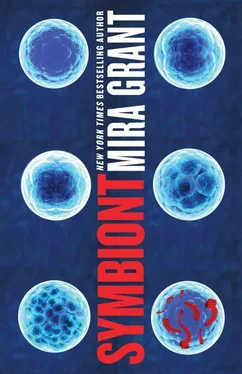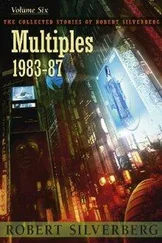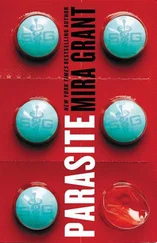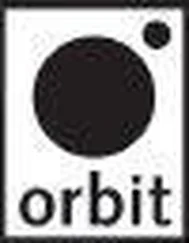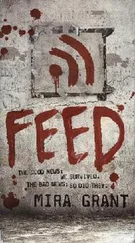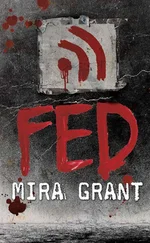The elevator dinged as it reached the ground floor lobby. I stepped forward, almost bopping my nose on the opening doors in my eagerness to get out of that small, tight space full of questions and uncertainties. I wasn’t in a hurry to see Dr. Banks—I was never going to be in a hurry to see him —but in that moment, anything would have been better than staying where I was and trying to figure out how this was making me feel. I didn’t know how it was making me feel. No, that wasn’t right: it made me angry. All of this made me angry, and that was what I didn’t know. I didn’t know how to deal with the anger. I didn’t know how to handle the sheer feeling of betrayal that came with the thought of seeing him again.
I was going to need to figure things out, and fast. There were five figures waiting for us at the front of the Captain Candy Chocolate Factory lobby, outlined by the early morning sun that slanted in through the big glass windows. The boards nailed up to protect us from sleepwalkers only extended about eight feet up from the floor; there was plenty of light. People moved outside the glass, nailing the boards back into place. There must have been another attack while we were sleeping.
That got more common every day.
Even with them reduced to nothing more than silhouettes, I could tell who four of the five people in the lobby were. The low-slung figure in the wheelchair was Dr. Cale, and the two men who flanked her were Fishy and Fang, recognizable by outline alone. One of the figures, a willowy female, was unfamiliar to me. And the fifth…
The fifth was one of the first people I remembered, one of the first humans to sit down with me and tell me I didn’t have to be defined by my accident and my memory loss, that I could learn to be a full, productive member of society despite the way my life had changed. He’d been lying all along, of course—he’d known exactly what I was, and that each of the skills I learned would be learned for the very first time—but he’d always known what to say to get me to come around. Even later, when I’d started to chafe against SymboGen’s pseudo-parental treatment of me almost as much as I’d been chafing against Sally’s parents, he’d always known what to say. After all, he was one of the people who had created me.
But he couldn’t talk me into taking a job at SymboGen, even when he tried his best, and he hadn’t convinced me not to steal the data Dr. Cale had asked me to get for her. Maybe he didn’t know me as well as I thought he did.
I wondered what he thought as he saw me walking slowly across the lobby toward him, with Nathan by my side. Did he look at me and see a woman, stronger than she used to be and only a little weaker than she had the potential to become, who had survived the apocalypse and the discovery that she wasn’t even the species she’d always believed herself to be? Or did he see the broken girl he’d worked so hard to keep under his control, the experiment gone horribly right and taking its first steps out into the world? And did it matter? Sally Mitchell was gone. This body was mine . Not hers, not anyone else’s, not ever again. I was even suddenly grateful for Sherman’s unasked-for haircut, because it was something Sally would never have done to herself. I looked like someone else. I was someone else.
And then I got close enough to see the bright, paternal smile on Dr. Banks’s face, and I was just Sal again, dressed in a paper gown and waiting to be told that it was time for cookies and juice.
“Sally,” he said, and while the name he used wasn’t mine, I couldn’t deny the reality of his relief. He sounded like a man who had just discovered that Christmas wasn’t canceled after all. “You really made it. I’d heard rumors, but I wasn’t sure.”
“No thanks to you,” said Nathan. “What is he doing here, Mother?”
“Manners, Nathan; Dr. Banks is our guest, at least for the moment,” said Dr. Cale. “He may be our prisoner in a little while. I haven’t decided yet. You’ve met my son, haven’t you, Steven? Oh, what was I thinking? You were having him monitored by SymboGen security. Of course you’ve met my son, even if I wasn’t always sure he’d met you.”
“Hello, Dr. Banks,” I said. I kept my eyes on his face, not letting myself look at the interplay between Nathan and Dr. Cale. They didn’t matter as much as he did. Not in this moment. “You made it too. I thought you’d have been arrested for crimes against humanity by now.”
“The United States government and I have an understanding,” he said. “I keep working on a way to help them solve their little tapeworm problem, they don’t arrest me. It works out well for everyone involved.”
“Except the dead people,” said Fishy snidely.
I didn’t say anything. I just looked at Dr. Banks.
Dr. Banks had always been a man who fought to present the illusion of perfection, clinging to it long past the point where anyone else I knew would have abandoned it as a waste of resources. That perfection was gone now. His sandy hair was mussed, graying at the temples, and a little longer than it should have been, showing how long it had been since he’d been to see a barber. He’d lost weight, leaving his carefully sculpted physique less defined than it had been the last time I’d seen him. Most damningly, he was wearing stained brown slacks and the top half of a pair of medical scrubs. The sleeves of his black runner’s top poked out of the shirt, their cuffs a little frayed. If the apocalypse was stripping us of our masks and revealing us for what we really were, what did that say about Dr. Banks? How much of who I’d always assumed him to be was a lie?
“I’ve been working day and night to try to find a solution,” he said, apparently mistaking my silence for awe, or for confusion, or for something easier to explain away than what it really was: understanding. I was starting to understand why it had been so easy for him to lie to me all those years, when he looked into my eyes and called me “Sally” and acted like my accident hadn’t changed anything.
He’d already been lying to everyone else.
“Who’s she?” asked Nathan, breaking the brief quiet. His gaze had gone to the silent girl standing next to Dr. Banks. I followed it, really considering her for the first time.
She was a whisper of a thing, a charcoal sketch that no one had ever bothered to finish filling in. Her skin was almost pale enough to be translucent, a milky white only a few shades darker than the skins of the tapeworms Dr. Cale kept in jars and feeding containers down in her lab. Her hair was black, falling to mid-back, and her eyes were a dark enough brown that I might not have realized they had a color at all if I hadn’t had her hair for contrast. She was maybe twenty years old, and stick-thin. She looked like she was on the verge of collapse, but she met my eyes steadily, and she didn’t flinch away.
Something about her was terribly familiar. I had never seen her before.
“Sal, meet Anna,” said Dr. Banks, placing a proprietary hand on the girl’s shoulder. She turned to look up at him, her dark eyes filled with worshipful adoration. He flashed a smile at her—the same warm, intentionally paternal smile that he used to direct at me.
In that moment I knew what she was, but I didn’t say anything, too filled with disgust and dismay to force my lips to move. The pounding of the drums was back in my ears, brought on by the stress and the realization that Dr. Banks had been doing more independent experimentation than any of us had ever suspected. And why shouldn’t he? He’d been one of the creators of the SymboGen implant. He had as much right as anyone to explore further perversions of science.
Dr. Banks turned that warm, paternal smile on me, and said, “She’s your sister.”
Читать дальше
